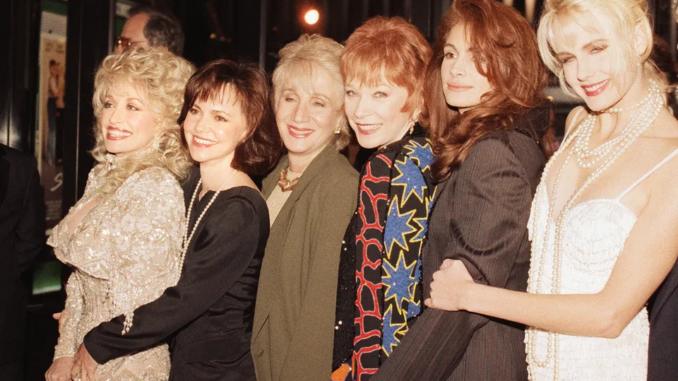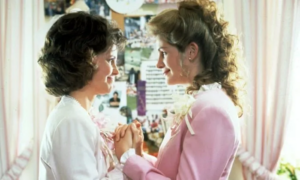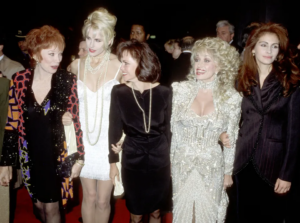
12 Things You May Not Know About ‘Steel Magnolias’
There may be no movie that better epitomizes the bond of female friendship than “Steel Magnolias.” Released 25 years ago this week, it’s become a touchstone ― mothers share the film with their daughters, teen girls turn to it as a sleepover staple and men of all ages find themselves taken with the tale of six brassy Southern ladies (Sally Field, Dolly Parton, Shirley MacLaine, Daryl Hannah, Olympia Dukakis and Julia Roberts) faced with one grave tragedy. Initial reviews were mixed, but it became 1989′s 14th highest-grossing film nonetheless. Today, you can’t turn on a television set without finding it somewhere. We caught up with Robert Harling, who adapted the movie from his 1987 play, to learn just how much “Steel Magnolias” means to him.

For Harling, it’s all a true story.
Even though “Steel Magnolias” doesn’t open with a “based on a true story” title card, Shelby’s tale belonged to Harling’s sister, Susan, before Julia Roberts brought it to the big screen. Harling’s good friend Michael Weller, who wrote the play “Moonchildren” and adapted the movie “Hair,” and his wife, Kathy, urged Harling to process his sister’s death by writing something. He whipped up the stage version of “Steel Magnolias” in a quick 10 days. “I wrote it to somehow get this true story off my chest and to celebrate my sister in the process,” Harling said. That means all of the characters are based on real people from his hometown of Natchitoches, Louisiana.
After opening off-Broadway, it was a seamless journey to the big screen.
Hollywood producer Ray Stark (“Funny Girl,” “Smokey and the Bandit”) saw the play and approached Harling about a potential movie. Stark wasn’t the only one, but his offer to shoot in Harling’s hometown ― and a guarantee that he’d “get the greatest cast you can imagine” ― became the winning bid. The deals were made in the fall of 1987, approximately six months after the play opened. “That’s how it came to me and then Ray got Herbert Ross to direct it and then it was this domino effect of superstar after superstar,” Harling recalled.
Harling created the role of Truvy, the beauty-shop owner, for Margo Martindale.
Two years before Dolly Parton played the part onscreen, Martindale originated Truvy in the off-Broadway debut. She and Harling were friends, and he wrote the part for her. Constance Shulman originated Annelle, and today you can see Shulman ― who voiced Patti Mayonnaise on Nickelodeon’s “Doug” ― as Yoga Jones on “Orange is the New Black.” The 2005 Broadway debut, directed by Jason Moore (“Pitch Perfect”), featured Delta Burke, Christine Ebersole, Rebecca Gayheart, Marsha Mason and Lily Rabe.

But back in 1987, no one expected it to be considered a comedy.
It wasn’t until audiences found “Magnolias” that Harling and the others involved with the production realized it had the trappings of a comedy. “All the women I knew were really funny,” Harling said of his approach to the setting that surrounds the tragedy at the story’s center. “They all love one-liners and they talk in bumper stickers, and they’re sharp, funny women.” Martindale still regales him with memories of their surprised reactions to the audience’s reception. “I just saw her not too long ago,” he said. “She’ll say, ‘Remember when we just didn’t realize we were gonna get all those laughs? We thought we were doin’ a drama!’”
Once Herbert Ross signed on, the A-listers started rolling in.
Ross directed “Funny Lady,” “The Sunshine Boys” and “Footloose” before “Steel Magnolias” entered his life. Ross sent around the script after it was done, and Harling recalls a dinner at Orso, a popular restaurant in New York City’s Theater District, where the director told him he’d run in to Sally Field a few days prior. “I think she would be very g
